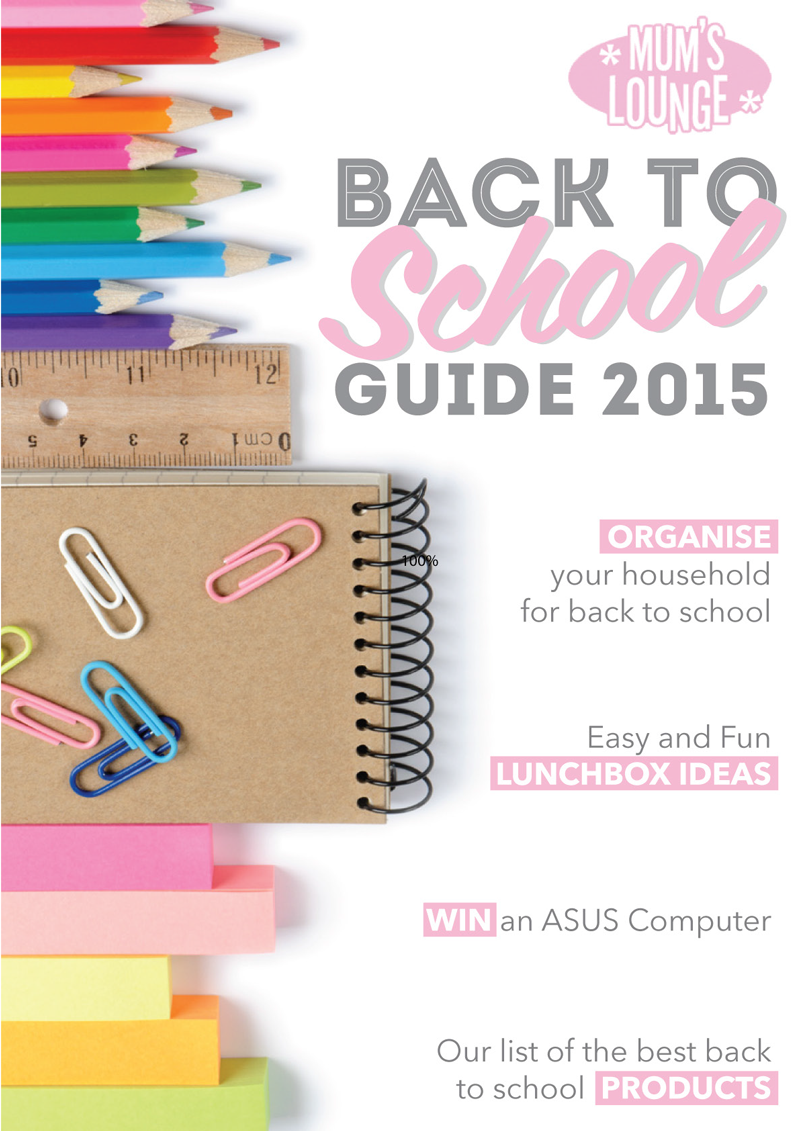The Seven Secrets to Stress Free School Mornings
Tips for Stress Free School Mornings
The school bus leaves at 8am on the dot. At 7:45 you have 3 school lunches to pack, 2 lost library books, 1 unfinished assignment, the 7 year old is in mid-point meltdown over mismatched socks and you’ve just spilt coffee on your clean white shirt. The shouting is in danger of contravening local council noise levels and your husband can’t find his car keys.
It is only after the front door slams behind the last child that you realise nobody ate breakfast, brushed their hair or their teeth. And your 5yr old was wearing bunny slippers.
You change your shirt and speed off to work despairing, “Why is the first hour of the day is always the most exhausting?”
School mornings can cast an evil spell over the most organised souls, sending your entire household into a vortex of chaos and stress that can affect your entire day. It’s not good for your health or your family.
The Family Beast has turned stressful school mornings into a time of calm preparation for the day ahead with seven simple steps. Admittedly they involve some change, some extra work initially and, as with all successful systems, some team work.
The good news is that once everything is in place, you will have less responsibility, and more time.
1. Be the first one up and dressed
This is probably the hardest step to initiate. It also has the biggest impact. A typical family of 4 will need an hour and a half to get ready and be out the door without any shouting or stress. That may seem extravagant if you’ve been doing the entire routine in under 20 minutes each day but if you list all the stress points (hair brushing, sock finding, breakfast eating, last minute homework) you can understand how it is possible to do it in under 30 minutes, and also why more time would be an advantage.
Set your alarm for 1 hour and 45 minutes before everyone has to be out the door. If you need more than 15 minutes to get ready, make sure you factor that time in. Under no circumstances should you eat into the 1 & 1/2 hours of family preparation time. Get up, shower and get dressed before anyone else in the house.
Note: with practice you will be able to get the whole family ready in under an hour.
Benefits:
• You are setting a good example – your children may not do as you ask, but they do listen to what you do.
• It makes you feel organised and on top of the morning before anyone or anything can ambush you.
• It gives you a brief moment in your day where you can organise your mental to-do list uninterrupted.
2. Have a weekly lunch plan
School lunches are the bane of every mother’s life. The more children you have the more complex the lunchbox matrix becomes. Overlay this with what food you actually have in the house and the number of minutes before the bus leaves and you are a contestant in your own version of Ready Set Cook (only without
audience participation or a prize at the end).
Having a weekly lunch plan can make this stress-point practically disappear. Sit down with your children and work out what they would like in their lunchbox each day. For some children it is easy, they are happy with the same thing day in and day out, others prefer variety. Once you have the menu set out, extrapolate this into a shopping list and make sure every item you need is always in the house.
Benefits:
• Your children are involved in what they receive each day.
• You are able to bulk buy some items, saving money.
• Some items such as muffins can be premade and frozen.
• You don’t need to invent a healthy lunchbox every single morning – just follow the menu, no thought required.
3. Lunches made/planned the night before
Now that you have a lunch menu and all the ingredients are in the house, there will be certain items that can be prepared the night before and kept in the fridge. Ideally you will be able to re-delegate the lunch- making to the children; there is no reason why they can’t make their own lunches with a bit of help and direction from you as you cook the dinner.
Benefits:
• You can prepare the bulk of the lunches and keep them in the fridge overnight ready to be packed the next day.
• Your children begin to take some responsibility for preparing their food and making sure they have it ready to pack.
• Your children can also be involved in time management – if they choose to make their lunch in the morning, they will need to get up a bit earlier.
4. Clothes/uniforms on bed the night before
This is a quick before bed task that children can perform themselves with a little prompting. By simply laying their clothes out the night before, socks, undies singlets etc. nobody has to go scrambling around the great pile of unfolded clothes looking for a sports uniform or clean shirt. All you need to do is remind everyone to put their clothes out. You can withhold desert/bedtime stories etc. until everyone has their clothes laid out on the ends of their beds.
Benefits:
• Eliminates the stressful sock search scenario
• Nobody has to look for items of clothing when they are sleep fuddled.
• They can get up and get dressed with minimal adult help.
5. The Remembery
The school schedule is pretty tightly packed these days. Just about every day dawns with a different set of activities to remember. Children need to chart their own daily activities and note what needs to be remembered each day. Monday is library day – pack library books, Tuesday is violin – pack violin/music book. Each child needs their own Remembery. It can be a book or weekly list on a pin board or stuck to the fridge. Younger children can use picture prompts instead of word lists. By having them create their own Remembery, they will be more invested in using it and updating it when necessary. Each evening ask them to check their lists and make sure they know where everything is and have it ready that evening.
Benefits:
• This buys a huge chunk of time each morning.
• Children are responsible for organising their own schedules.
• It can help with writing and reading skills.
6. Homework the night before
Homework is a major issue in many households. Children don’t want to do it, the parents don’t want the battle and the schools generally don’t want children to drop behind. Setting aside a dedicated time for homework in the evenings.
is the most effective way to get through this arduous task. Make a time and get everyone to sit down to do the homework. If there is no other option – no television, no playing, then eventually everyone will settle in and get it over with. Younger children can do some drawing and you can go through the bills or whatever paperwork you need to attend to. Trying to get homework done over breakfast is just wrong and causes indigestion.
Benefits:
• Introduces time management skills.
• Children start to understand the value of getting things done.
• Develops efficient use of time.
7. Bath/Shower the night before
Once everyone is organised and prepared for the following day, shower or bath everyone at night. A lot of dirt and grime attaches itself to children over the course of a day. Water is very calming. It can become a pre-sleep trigger helping children who have trouble settling down at night.
Benefits:
• The sheets stay cleaner longer.
• No bathroom gridlock at 7am everyday.
In order to keep the system going, you will need to keep your children involved in the process and allow them to suggest changes and alterations to the seven steps above. The most effective way of doing this is to hold a weekly family meeting. The weekly meeting is a time for everyone to discuss what is and what isn’t working for them and for solutions to be found and systems to be streamlined. If your children are allowed to instigate ideas and try new things (even though you may not see them as ideal), they will be willing to take on more responsibility and see you less as the ‘housemaid’ and more a co-contributor.
The Family Beast suggests that you commit to the Seven Steps for a full school term. Lasting and effective change rarely happens overnight but the pay off will be calm mornings with enough time to concentrate on making sure everyone eats a wholesome and nutritious breakfast which is the real key to a productive and positive day.
Camille Blyth is the author of The Wilderness Years, the must read parenting book of 2014. She is also the creator of The Family Beast where she celebrates the randomness of family life, the dullness of housework, and a particular loathing of the kitchen.
Read the complete Mums Lounge Back to School Guide 2015 here














